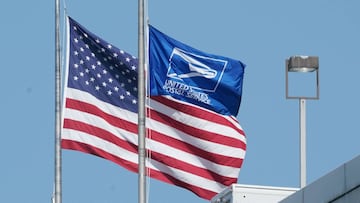Second stimulus check: who would receive the money first?
After Congress adjourned for recess without striking a deal, It could be another month at least until Americans receive a second $1,200 stimulus payment.

US Congress adjourned for the August recess on Monday 10th and now will not return until after Labor Day on 7 September. It means that with no deal on the table for a new Coronavirus relief package, Americans face over a month’s wait for a second $1,200 stimulus check. The earliest that a deal could be struck will be after Congress returns from vacation on 8 September but even then, it's unlikely that anything will happen immediately. The House of Representatives is not due to reconvene for votes until 14 September although members will remain on stand-by to return to Washington at 24-hours’ notice in the remote scenario that a deal on new stimulus legislation is struck. For any new bill to be passed, members are required to cast their vote in person and so would have to be recalled from vacation.
- Second stimulus check: White House pushes 'skinny' Covid-19 stimulus bill
- Second stimulus check: how to receive it faster
- Second stimulus check: what did democrats say in DNC 2020?
- Democratic National Convention: schedule, speakers, how to watch
- 2020 US Elections: How can I request a mail-in ballot?
Stumbling blocks
Among the notable stumbling blocks that led talks to stall were enhanced unemployment insurance - Democrats wanted to extend a $600 weekly benefits boost until January, but Republicans proposed significantly lowering this figure - and financial aid for state and local governments. Pelosi and Schumer sought $915bn, a sum Mnuchin and Meadows were not prepared to countenance.
Future payment?
Looking ahead to a potential agreement and subsequent payment, the earliest beneficiaries would see money arriving in accounts would be 23 September. For that to happen, we’d need the Senate to reconvene as planned on 8 September having already come to some sense of a deal in the meantime. The bill could then pass the Senate on 9 September and (based on our experience with the previous checks within the CARES Act) there would be a two-week lag period to the payments being made. Remember too, that this scenario would only apply to those households where the IRS have their bank accounts.
Due to COVID-19, the tax deadline had a disaster-related postponement. That means #IRS will pay tax refund interest, calculated from 4/15, if an individual filed by the postponed deadline of 7/15. Details: https://t.co/TJCM5OTyYw pic.twitter.com/8uaxJiTwHn
— IRSnews (@IRSnews) August 18, 2020
Related stories
The next group in line for payment would be Social Security beneficiaries who had direct deposit information on file with federal agencies.
Live, US-focused coverage of the Covid-19 crisis
You can keep yourself abreast of the latest US news and figures in the ongoing coronavirus pandemic with our daily live blog.

